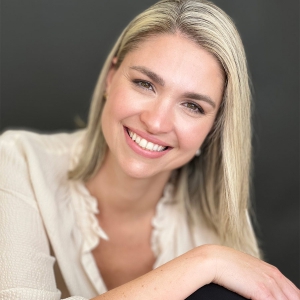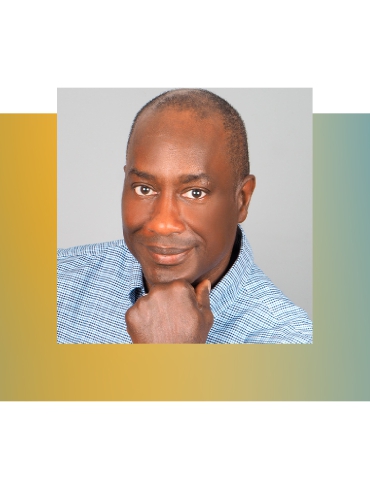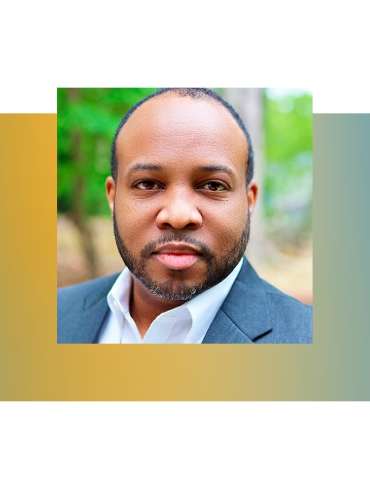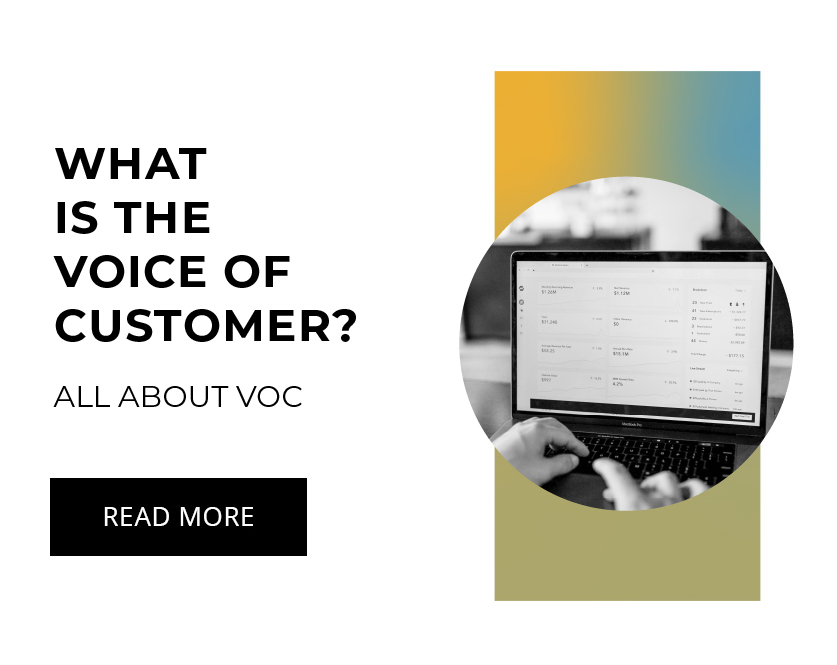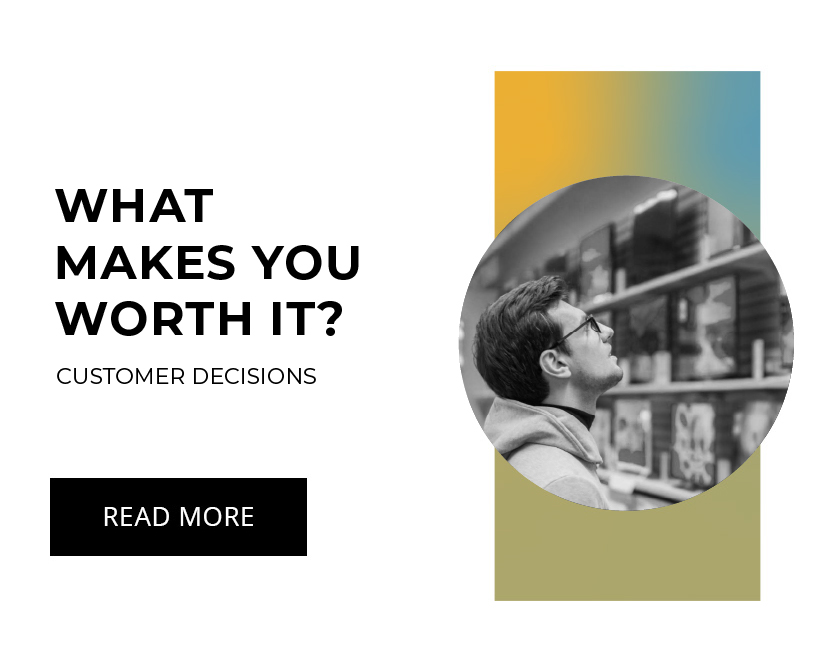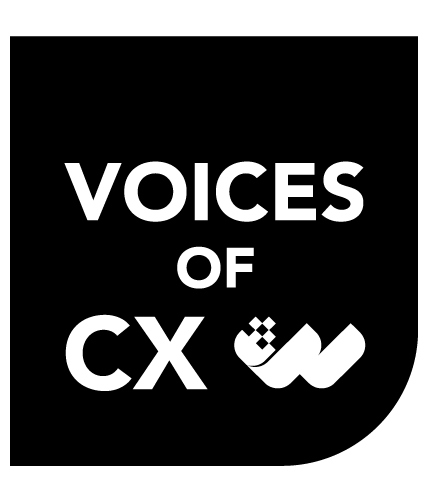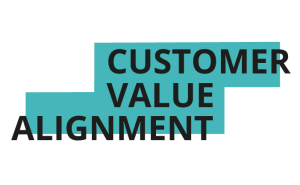About deBBie akwara:
deBBie akwara (popularly referred to as the CX Queen), is a leading CX entrepreneur and CX educator in Africa. She is the founder of Nigeria’s 1st boutique CX management consulting firm, Niche Customer Experience Consulting Firm.
Prior to Niche, deBBie led CX success in the banking, telecommunications and education sectors working at noted local, pan African and international organizations in Nigeria i.e. Zenith Bank Plc, United Bank for Africa Plc, Etisalat Nigeria (now 9mobile) and Bridge International Academies. Successes recorded were an increase in self-service adoption, an increase in the organization’s industry customer service ranking and an increase in revenue generation from CX improvement projects.
As an advocate for CX education in Africa, deBBie (through the Niche Institute of Customer Experience & Innovation West Africa) launched Africa’s 1st indigenous globally recognized CX certification courses in partnership with the Institute of Customer Management, United Kingdom and certified by the European Professional Certification Agency (now known as European Marketing and Management Association – EUMMAS). It is a first of its kind CX certification that caters to the unique learning style of Africans, inculcates western learning methodologies and provides varied CX certifications for business managers, business leaders and CX & customer service consultants.
deBBie is a founding member of the Customer Experience Professionals West Africa (CXPWA) association. She is on a mission to grow businesses one customer experience at a time across Africa and building the customer experience management capabilities of professionals in Africa that will drive an authentic practice of customer experience management on the continent.
deBBie was recognized in 2020 as one of the top global CX thought leaders and influencers by Survey Sensum. She is an author, a mom, a humanitarian and is always looking for new opportunities to learn about CX and connect with professionals seeking to find their true expressions in CX and demonstrate a practical application of CX to drive sustainable business growth.
Follow deBBie akwara on LinkedIn
Follow deBBie akwara on Twitter @debbieakwara
This episode was also recorded in video format. To watch the conversation, tune in below:
Mary Drumond
Mary Drumond is Chief Marketing Officer at survey tech startup Worthix, and host of the Voices of Customer Experience Podcast. Originally a passion project, the podcast runs weekly and features some of the most influential CX thought-leaders, practitioners and academia on challenges, development and the evolution of CX.
Follow Mary Drumond on Linkedin
Follow Mary Drumond on Twitter
Follow Worthix
About Worthix
Worthix was born in the Experience where customers are the backbone, and customer-centricity is the soul of every company. Innovation is at our core, and we believe in welding technology to bring companies and customers together. Our purpose is to use cutting edge mathematical models and Artificial Intelligence to extract actionable, relevant, and easy-to-understand insight straight from your customers’ minds.
Transcript:
Mary Drumond: Hello listeners and viewers, we are back with one more episode of voices of customer experience. We’re in season seven. And today I am joined by Debbie Akwara who joins us from Lagos, Nigeria. She is the founder and principal consultant at niche customer experience, niche CX consulting firm. And she’s got some amazing views about customer experience that we rarely hear on this podcast, because we tend to be very Western focused. So this is a really amazing opportunity for me to open up that scope and that lens and take a wider view of customer experience and the way it’s practiced all around the world. So, Debbie, welcome.
deBBie akwara: Thank you for having me. Thank you so much.
Mary Drumond: Awesome. So Debbie, I wanted to start off this episode.
Firstly, you and I have gotten to know each other through pre-calls and conversations, but our audience has not. So just starting off with you, taking a second to introduce yourself, talk a little bit about what’s important to you, what your goals are and what got you into customer experience to begin with.
deBBie akwara: Yeah, sure. Why not? So, um, I am the fifth child in a family of nine. And so, you know, I started off-
Mary Drumond: I’m the fifth child in a family of eight.
deBBie akwara: Oh wow, okay. Right. And so I had a rather, I wouldn’t say unfortunate situation, I would say it’s mix of both, where after secondary school, I guess that’s what you refer to as high school. My father wanted me to go university to study law. Now the requirements for law were that I needed to have a set of scores in math. Right.
And I suck at math, to be honest. So I tried a couple of times
I tried it couple of times to have to take the exam, and I kept failing. So eventually I got to the point of having the least score above the F, right. So I had kind of got into the pass category, and that was where the university at the time decided that. for you to study law. You have to go beyond the pass and have like the highest score like, okay.
I think I’m done with that. I’m done sitting at home people who I should be with my friends. they’re like getting to second, third level university, so I have to get in for what any of that cost And I went into theater arts And my father. So while writing exams, into getting into the university, for theater arts so I took up a job as. Kind of like a store manager for a boutique in my hometown. in Nigeria. Right. And that was my first experience I’ve been in the front line. So it was interesting for me because of two things.
One yes. I knew I needed to take, so there were lots of things I ended up in the morning, open the store clean the store. I arranged the clothes, look for exciting pieces to put on display window that would lure customers into the store. And as customer come in asking them what they wanted, finding that specific thing. I then tried to sell one or two things extra, right.
That would go well with that one thing that they wanted. And you know, so after that I go to university after university, I was in broadcasting for a little bit. And then the show was pulled off of the air. And I got into banking. So one of my fans and
says you’re looking for a job you’ll do well in customer service You’ve got a big personality. You are a known face You’ll do really well. So I applied and I got the job in customer service and in the bank and I was moving from more of an informal thing to a formal frontline position in the bank and moved to head of department, then I switched banks So in switching banks I was switching banks. So still being customer service.
But my interviewer who was the general manager of HR said to me you’re better suited in total quality management I’m like, okay, let me give it a shot. I like new things, I like trying new things like, okay, I really want to do that. And It was kind of a mix of what we now know as customer experience. Well, back in the day, I have no clue what that was. So, um, So I did that It was really interesting. And that was where I really stopped to evolve Well, I wouldn’t say evolve in CX, but when I started to understand sets and patterns and behaviors. So at the time were focused on customers being happy across all the touch points, not necessarily going into the details of operations. And after we had a run through where, so we have this survey in Nigeria like KPMG that they do every year and then the bank was ranked number one. That’s been number one for like two, three years. So the bank was like do we really need this team of seven. It’s what he’s moving around. Let me choose seven. Let’s be assigned them. So my team was dissolved and I love what I did. I wasn’t happy about it. So I had the choice to choose what department I wanted to go to.
And I opted for training at the time learning that development. So I was there for a number of years and taking in all the things that we have done where we got it wrong. And I was put in charge of customer service trainings at the time. So I still had opportunity to design curriculum and kind of create that space. And I was also responsible for entry level learning curriculum.
What skills they need that against that job description I had, I had that exposure into that now, soon along the line, the bank dropped in rating And they started looking for everybody again. Right. So I had some ideas about, okay, this has happened before I came up with like a proposal. I told my boss verbally, my direct boss at the time she said to me we’ll come up with the proposal together.
I should send it to we had that as senior level general manager at times was responsible for HR and customer service. So I put it together. And then I was pregnant with my daughter and she looked at it, sent it to, our overall boss, general manager for HR and customer service. And she said, Debbie, this is great.
Immediately you get back from maternity leave. You are zooming into this position to do everything. Every single thing you said you’d do. Right. So I thought that was good. So I thought that was really good. Like back from maternity leave, and by the way, she didn’t have any experience in CX or customer service She just had a passion for it.
This was good for her that, okay. Somebody has an idea that, you know, we can work with. So I went and had my baby got back and got right into the role and we agreed that everything that we needed to do, and again, I have key learnings from. The whole point of my team being dissolved. So I knew that it was beyond making customers happy at the surface, there were deeper things So we went into specific products, went into forms specific products, that pointed to people that pointed to processes that pointed to system. And we went all the way down at that level. And I I was just a one man team, by the way, this is a bank across Nigeria. Well, it’s over five to 7,000 employees. It was just me on my computer.
I’ve just tried to do things virtually. And with all the work that We did at the time. And it was so the bank had a strong service culture. but there were loopholes You know, over time you relax and you don’t force as many things as you used to. So we just use the approach of let’s reignite the passion for service Let’s enforce some of these things right And the bank went up back to number one. And then my team expanded. I’ve been along the way. They’re like, okay, that’s enough for CX, but we wanna merge you now we HR So I became, you know, CX and the HR business partner. At the same time, I was upset because I had a plan, but my mentor at the time said to me, Debbie why Do you waste your time on your emotions? The time you will spend crying spend that time in a quiet place and have a vision for your new role. Don’t waste your time on emotions. So that’s exactly so it went into I went into HR as a business partner And I began to see the connection between your staffing employee profiling, um, you know, the whole point about talent management and how that plays out
And we go back into CX Which we now call employee experience you put the pieces together and it all makes sense. Um, so another bank came calling head hunting to start their team And I moved to that bank. And then, you know, I wanted more, I felt like there was more to explore because when I went to the second bank the issues were different So in engaging the business, what I found out was it was a bank that had it was the merger of two banks so you have two conflicting ideas of service delivery. So when you that to create that one, one idea, That represents both and represents the vision the values the goals of the business. So we did that. It was, it was a different approach because this one I wasn’t at my desk I wasn’t at my computer I had to travel around.
Most of the regions, talking to customers, talking to employees We were researching products, monitoring products, monitoring platforms, monitoring touchpoints and just everyone to understand that, look, this idea. It’s the way to go. I would kind of broke the idea down. What does this mean for it? What does this mean for finance?
What does this mean phones transfer or for the guys at the counter who paid cash? We kind of broke that down and in less than one year, the bank moved from number 16 on the KPMG ranking moved up to number 13 And so for me, it was unique because the first bank had a different issue. This bank know, that had I was like, okay.
So what does it feel like outside of banking? I wanted to know more so on the stuff Is this the whole idea what are the different dimensions And telecommunications and the blockchains in London? I Actually took a level down Started at the head, of department down to manager I really wanted to experience customer experience management in the telecommunication sector.
So I took on that job. That’s where I have the real deal like, okay. CX now was about the money. exactly. So that happened for me. It was interesting. Yeah. It was really interesting And then from telecommunications I moved to education Education for me was like amazing because it’s kind of brought together all the experience that I have had my entire career.
So I was director of customer experience by a company called Bridge international academies, they build schools in low income communities I was responsible for marketing. So once they established a new school, in the low income community they hand it over to my team to set up the school, find the customers, find the parents do marketing, branding, all of that stuff. And then recruit the teachers.
And recruit the manager. So it took me across training HR CX PR, it really did stretch me So it’s like I was working, you know, in the business, only running the business. But the key thing for me was in something from the HR perspective, it’s, it’s never great to jump up So when I moved to telecom and I knew I wanted to move across more sectors which is why I set up the practice, right. It’s sort of a practice that can offer Customer experience management services to as many sectors as I would love to. And that’s been my journey. So I left that employment. when I started the firm, it was just training for CX professionals.
And it was all based off of my experience. I wasn’t reading any textbook. There was nothing to read It was just my story. And what had worked from that I wanted to share. So when the time came to leave that employment, I thought Let’s give this a shot and that was in 2018. So I’ve been doing this ever since.
Mary Drumond: It’s amazing because you’ve got so much experience in the trenches, but not only in one specific sector across sectors, I mean, from banking to telco to education. There, there are so many different nuances that you have to push. Like you said, when you’re in telecommunications, it really is about, so much about that return.
Whereas banking, you worked in so many different departments inside these banks, or, um, you had, you were given. Roles that had multiple functions. So it gave you such vast experience on so many different angles or facets of customer experience, including the, employee experience portion that you got in your experience in HR.
So all of that experience was able to make you a really valuable asset for any organization that was looking to implement a CX program. And this is what you did. With your consulting, right? So nowadays in your consulting practice, what methodology did you develop? What sort of approach did you develop, that’s really a game changer in your market?
deBBie akwara: Yeah. I mean, obviously it’s obviously what works for me. while I was moving through different businesses. And when I took a step back to evaluate my performance something that was very consistent for me in terms of areas where I succeeded First thing first was understanding the character of the business which I liked all the voice of the business. Right? So where is the business going What does the business wants to achieve overall? And then what is the customer component? Now, when I find out what the customer needs or their goal I drill down to the current state of the customer experience so that I can start like a gap analysis.
I want to see what this is the goal. This is actually what the customers feel now. You know, whether you have a long way to go or whether you have a short road to travel. Right. So that for me was the very first I would call it the, all of the niche customer experience, impact model, it’s all about impact on the business, right?
In the diagnostics process, what’s key is, I made some errors when I started my career as well. Where you are focused on the customer satisfaction as a score, and that’s the customer overall experience so that the scores make sense. Right. So again, just to evaluate that experience for me, it’s like when you’re getting that feedback on where the customer status is now, so that you can kind of measure that anticipated state, it’s very important when you’ve got the customer’s overall experience.
So we kind of just, that’s all […] Even from the point of design, right? What inspired the design of the product?
Because at the end of the day, he wants to make sure that’s how the customer feels is a reflection of the purpose of which that product was designed. That tells, that gives you your product truth. What I like to call your product truth. Your product truth is what your customer gets out of it. Right? So once that’s, done and you see your current state and your customers’ experience across all states of their journey. And then employees. Now employees tricky because in my part of the world, employers sometimes don’t even want to hear what employees have to say.
Cause they’re still trying to get a handle employee experience things. So what I found out is, I come from the perspective of CX maturity assessments. Which actually is the voice of employees. Employees are telling you, you know, how mature you are from a CX perspective. I mean, breaks it down into five key areas, right? So once that is done, all that data is in, it is very, very, very clear.
Number one, where the business is not doing well against what the goal is. Number 2: what you need to put an eye on to make sure nothing goes wrong, aside from what you need to improve, so what you need to improve a number two, of course. But the last thing is what you put your eye on, what I like to call the CX metrics. So I tell professionals every time, when you go into a job, you don’t go to that job role with a preconceived notion of, I want to top CSAT, I want to know what an NPS score is. I want to know what the customer – you don’t even know the business yet! Get to know the business. Where this angle really becomes strong for me, wasn’t Telecom, it was in education. So for education, we’re measuring satisfaction. Well, that wasn’t what was important to parents. The priority for parents was, like all that was important to the parents is, has my child improved academically since joining the school? So we have to create the academic improvement score, AIS. We were not hung up on NPS. Now, because it’s an academic improvement school, obviously it’s not a CX KPI. The curriculum department, the guy who designed the curriculums, all of those guys now came into the mix, right? So the next thing is, when you get this right, you begin to break those silos. You begin to break those silos because people begin to see themselves as important and their role in the customer journey. So that’s really what I found I was.
And when you are with everybody together in workshops now mapping journeys, improving together. I have realized from my experience that CX is that function where your lips are sealed. The praise doesn’t come to you, even though you might initiate change. So I found that when I went, I tried to go like, I’ve done it! The next time I go back, I don’t get support. Oh, you did it, so you keep doing it.
Right. But I realized. Right. So I realized that when I go, I send the email to say, like, we have achieved this. Special thanks to this person in IT for helping. That person. They feel like rockstars, right? So, and then the next step now is how do we take that vibe, that positive energy that, that vibe in the air and put that into into a process. How do we institutionalize that behavior, so there’s always a need to look inwards, evaluate, improve, measure, analyze. That’s just informed approach when we talk about the niche customer experience impact model. I’ve said quite a bit.
Mary Drumond: It really is. No, but you’re absolutely right. It’s very specifically about the impact and being able to not only understand, but track how each of the experiences are impacting your customers, are impacting your employees, are impacting any of your stakeholders along the way.
It’s probably the most strategic portion of doing customer experience. And that’s why I struggle so much with CX practitioners that aren’t paying attention to impact. Because what ends up happening is that sometimes we get so carried away in trying to help, in trying to improve, that we want to improve everything and that’s not possible.
There’s no organization in the world that it will allow you to change everything at the same time. You have to have an order of priorities and your priority, your highest priority has to be the aspect of the experience that has highest impact, right? Once you detect that impact, you can make changes. You know, so yeah, absolutely. I’m totally with you 100% on that.
So the another thing that I wanted to talk to you about, Debbie, really is the aspect of CX in Africa and the difference between practicing CX in Nigeria, in other countries, neighboring countries versus practicing CX in the West. You know, the West tends to have a lot of thought leadership. It tends to be where there are the most authors, the most let’s say celebrities when it comes to customer experience. And a lot of the ideas that make their way into other continents and other parts of the world have that Western style that doesn’t always apply. And lots of times we see customer experience efforts failing because they’re trying to copy best practices that work in other markets.
So you and I had a conversation about this earlier, but I wanted to share this with our audience. Your point of view and your words stuck to me. And I wrote them down here, where everyone needs to find their own expression of CX. So tell me a little bit about the African style of learning, which I think is really important, and how you were able to take a lot of these Western concepts and translate them into the way that the African culture tends to learn.
deBBie akwara: Yeah. I mean, I mean, that pushes from two angles, in terms of the practicality of CX, how it’s done in Africa and how they adopted it. And then also I want to talk about on the perspective of customer experience education, which is an area that I’m extremely, extremely passionate about. So for the latter, I mean, we have amazing brands. We hear about them every day, sing about them every day. can’t stop talking about them. Amazon, Apple. We have Disney, Zappos, amazing businesses, amazing brands, but guess what? Apple did not, Apple was not founded in customer experience. Customer experience for Apple is different. And I’ve spent some time just to understand, and the truth is they have to put in the work on the understand their brands, where they’re going, who their customer is and what they need to do to keep that customer coming back.
Every brand has its place, every brand has its priorities. Now, if you are a business in Africa with different ideologies and different customer types, why would you want to think of just copy and pasting?
To be honest, in my opinion, that’s why customer experience is taking so long in Africa to find its true expressions. Because the people who are aware about customer experience, and are driving customer experience, keep comparing it to the Apples, Zappos and Amazon. Like find your own voice, find your own voice. Because the truth is the customer world, you’ve put in so much time. This has gone on for decades, right? So by moving from that place of customer service, and don’t forget, the average African, we build, we thrive on relationships. We’re like family, you have this kind of family mindset, so we’re not like, we’re very anti customer. But if we can build on our African-ness. From that perspective, well, just imagine how we could evolve and blossom in CX. Which is why I talk about, let’s go back. Let’s understand What do they want? So each business understands their customer and what they want. Does this match this customer profile or persona? And what does that even mean? Right. So we’re missing the mark.
I struggle with people that talk about CX and have no frontline experience, to be honest, I struggle because that is where the problem is. If you don’t have frontline experience, hands on experience, you cannot implement a strategy. So what this is doing for us in Africa is that it is making CEOs, who are exposed to, as you know, celebrating well-known CX practitioners, it’s making our CEOs what’s the word, that was making them resistant to CX. Yes, because they feel like it doesn’t work. It is fluff. But it is not fluff, right? Now that brings me to the points around customer experience education. So a CEO thinks, this is typical here, we like the idea of CX and we heard about CX. And I’m back from my trip. I want to start a CX team. You. I know you. Well, you, you smile a lot and you have a good personality. I know you will do the work, “do well” comes up. Now in “doing well”, you reassigned that person to go and become the vice president, chief customer officer, the head of CX. No experience yet. And it’s okay. Right? But guess what, you do that, two things happen. Number one, you send them for global trainings that don’t have local contexts. So they go for those streams, they come back, it’s all theory, so they cannot implement, they’re fired. And then the second scenario is, you don’t want to take a chance when there’s no local dimension. So the local dimension, that’s my issue around education, right? So we have the way we’ve learned in Africa, while some of my African professionals always wants to go Western, I’m an advocate for why do we have to change who we are? Why don’t we just allow our authentic African selves to evolve. We have the way we learn. Yes. It may not necessarily trigger innovation, critical thinking, all of that stuff. Well, let’s come from where we are so that we can embrace it in our own expression.
So that informed- and I had people reach out to me on LinkedIn several times. Oh Debbie, I want to go for a certification. And I actually did recommend a number of certifications. And they come back with, doesn’t work for me. I can’t just go read these books and pass an exam. I want the knowledge, I want to do something. You know, I hear all kinds of, I said to myself. Okay. Why are you looking for a solution. So I just took all this feedback from friends who are, I have friends who are very senior positions in CX in their businesses that don’t necessarily call themselves heads of CX. And they’re doing amazing stuff. And I say you guys are killing this thing.
Don’t worry about what is CX or anything. Celebrate your internal wins. And just keep going. So I had sessions with all these guys, and came up with a curriculum that blends the African approach to learning. And also to be honest, the whole concept of CX is Western. Right. We’ve done it our own way all these years. So how do we create that balance so that even if you decide to go out of the country to get a job. You’re not, you’re not in the dark, right? You are aware of some things. So we Africans, we learn, we focus on facts first, theory. We do memorize, yes. Right. And then for you guys, you’re more about your triggers, get your brains working, critical thinking, innovation and stuff. So for us, what the case of, let’s lay the foundation with theory and the facts, and then we’ll introduce capstone projects. So you’ve done all those things. We’re going to treat the the capstone project for you with an actual problem in your business that you’re going to solve. So let’s see you translate your theory into practical. And then the conversations that we have during the, during the program are conversations about brands that are here. Everyday brands, right? So they can, we do both and we have, you know, global platforms. Right. And what we’ve done again, is rather than have a one size fits all, or you’ve been disqualified by not being a certain level up, you have created three levels, right? So we have two entry level. Team leader, supervisor, who wants to just evolve your role, whether you’re in sales,And then we have sales, marketing, customer service, customer support, operations, IT. You know, you can do it, right? Now, we have business managers and then we have the business leaders. So your heads of CX, your VPS, your CCOs, all of that. Then we have people such as myself. Consultants, right. That wants to you have a practice. You aspire to have a practice. So we have that as well. And we’re introducing things like consulting business model handouts.
So it’s still the same thing, you know? How do we, for me, there’s so much work to do in Africa. So I’m very passionate about- Debbie’s on fire. I’m very passionate.
Mary Drumond: It’s amazing.
deBBie akwara: So I don’t have a problem sharing my knowledge. We need more consultants in Africa that are ready to do the work. To say, this is the customer experience framework. If we need one that works best for Western Africa, South Africa, for East Africa, for North Africa. I recently learned about a European group that has come together, have their own customer experience.
So excited. I’ve never seen it before. I thought I was just the only person thinking I needed to stand out. Driving the CX space for Africa. And it was amazing. We need more of that. We need, while we’re talking about local CX leaders. Who there is representing, that’s where we begin to see the true color, the real appreciation for CX. It is just one view.
Mary Drumond: Yeah. It’s really amazing to see local markets and what they’re doing around customer experience. Like you talked about the European customer, I think it’s called like EOCX or something like that.
And I know that in Brazil, there’s an amazing group called ACX, which is Amigos do CX, the friends of CX. And now they’ve actually become a part of the CXPA. So they’re the Brazilian arm, let’s say, of the customer experience professionals association. And, but it’s hyper relevant to that local market. So what they’re doing is, they’ll take those concepts that are coming from abroad and they’re applying it to the reality of the country and the culture. So, you know, for instance, I remember, so the listeners on this podcast know that I grew up in South America. And it’s really interesting when you try to apply that reality of like customer service, for instance, you try to apply that to an underdeveloped country, like Brazil and South America, and these people are saying, Oh, you just have to comp their purchase. You just have to say, thank you so much. Don’t worry. We’re going to cover this. No expense to you. Carry on. Like, we can’t do that.
That’s impossible that doesn’t even work. You know, a company can’t accrue that kind of cost in their operation. So there are so many little nuances that wouldn’t even make sense in the U S market or in the European market, because our reality is still so different.
deBBie akwara: Yeah. Absolutely.
Mary Drumond: So these local chapters, these local organizations, they’re so important to the continuity of customer experience as a global concept, you know, it’s that concept of putting the customer first, but they truly tend to work better in markets that are competitive. Right? And what you lots of times find is that in different countries, you don’t have as fierce of competition. Sometimes you have one player. Sometimes depending on the country, you have a state run company that takes care of that, you know, and then it becomes a lot more difficult to implement a lot of these concepts. So I am really excited about the work that you’re doing.
And I urge our international community to feel inspired by Debbie’s passion and go and do the same for your community. Call Debbie, message her on LinkedIn and get some tips.
deBBie akwara: There are no, tips, really. It’s just following the beat, following the tempo of your country. That’s there’s no, that’s the beautiful thing. That’s like, even in specifically, Nigeria we’re struggling with CX because we’re trying to catch up with the Western world. Well, we haven’t sorted out as little as our channels. We haven’t sorted out our products. We haven’t sorted out interactions. And we’re talking AI. We’re talking so much, but struggling.
Mary Drumond: Yeah. Yeah,
deBBie akwara: The struggles, we’ve not allowed ourselves to grow. Crawl and, you know, into walking, we’ll just try and run. That’s the challenge.
Mary Drumond: Yeah, we tend to be very near sighted when we are in the US, where all we see is the reality of what things are like in America. And we fail to understand that the problems that we have here in so many senses truly are first world problems. When in other places, there’s, we’re still building the foundation of customer experience, but there is an advantage. And that advantage is that in the U S and in Europe, where we had to have that learning curve of what works in customer experience. Now these markets are over here. Emerging markets can go from here to here. You don’t have that same learning curve.
deBBie akwara: Exactly. That’s the thing. And this is the beautiful, that if we don’t have this thing learning curve and we’ll make our own mistakes and learn, now we’re all learning from each other.
Mary Drumond: Yes.
deBBie akwara: But that’s not happening now because all the focus of CX I’ve had confrontations from CX professionals that, I’m not going to call any names, right. People that I’ve been following for a while, do stuff. It’s me in a DM. And I’m like, okay, it’s CX, like a Western thing, right? The concept of CX is a Western thing, but I don’t allow myself to be distracted by all those. That’s one why, I’m not doing it for recognition. I’m doing this because it’s my purpose. What I really want to do as a long term vision. And the business is not Debbie consulting firm. Right. It’s niche for a reason. And we have, I mean, just to let you know this, we have grown into three different businesses. So we now have the niche customer experience company as a group of companies, under which there’s the consulting business. There’s the Institute of learning. Because you see this learning, the education has to happen. We want somebody who wants to go into manufacturing a local products to say, Niche institute of CX and innovation, can you help me go to markets? I will take you on board for two weeks. How to be a full hands on, conducting customer interviews for focus groups, coming up with your product prototyping, coming up with your MVP.
It’s also learning for us. That’s why we removed it. Certification program. Africa is our target. We want Africans to be knowledgeable. And we’re looking for case studies. We’re trying to gather, I’m very open about on LinkedIn, because I want to know people have case studies in Africa. Let’s share stories, let’s share stories, right? And then the third business, which we have just launched, where I am co-founder and CCO, is a technology business where we are working on customer experiences. And it’s for the problems that I’ve seen with clients. Right. So we have SMEs who can’t afford us, but they need our services. So what can we give them on a subscription base, you know, basis, working with their disposable income.
All these things. You don’t get mapping journeys and like you have to get into the work. You have to- we do pro bono work for SMEs. We do that so we can learn. Right. Like it’s going to outlive me. It’s not about Debbie. It’s a call. So every African who is in CX space who’s listening, or if you’re an African and you want, you believe in this whole drive of us finding expression. Yes, the frameworks are good. They identify- I even wrote a book about CX metrics, the five, right? I’m one of the guilty ones. And I tell people every time I’m like, if I say something today, check me five years to come because customer behavior is changing. Businesses are changing. So I may undo what I have said and it’s okay. That’s what I love about customer experience. It lets me leave and eat and sleep outside, outside the box.
Mary Drumond: Yeah, absolutely. Absolutely. I think that a huge portion of this, and it’s something that I am an advocate of, is that our job in customer experience is keeping up with these changing expectations and keeping up with the changing markets because, or else we get left behind in a heartbeat.
Debbie, this was such an important conversation. It was so valuable. If any of our listeners do want to connect with you either to have a conversation or just to follow your work, what’s the best way for them to connect with you?
deBBie akwara: Oh, I’m I’m most active on LinkedIn, to be honest that’s like home for me. Yeah. At LinkedIn, and then next to LinkedIn is Instagram, but still the same name. Debbie Akwara.
Mary Drumond: Awesome. So I urge everybody to follow Debbie because there definitely is a refreshing perspective that she’s bringing to the table. And you know, we’re talking about, um, the CX community in Africa, learning from the West, but there’s so much that the West has to learn from Africa, from South America, from the APAC region, from so many different places in the world.
And we need to get out of that bubble. We need to look beyond what our limitations are and expand that point of view. So thank you for coming here. It was so great.
Thank you so much for having me.

